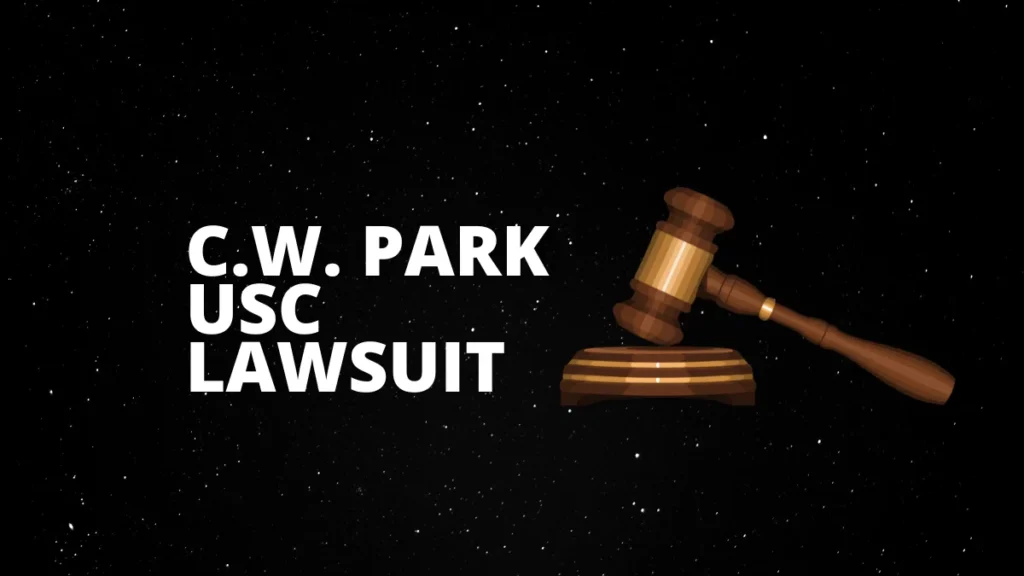The landscape of higher education has been marked by various controversies, with one of the most prominent being the lawsuit involving Dr. C.W. Park and the University of Southern California (USC). This introduction sets the stage for the article, highlighting the significance of the case within the broader context of academia.
The introduction aims to capture the reader’s attention by emphasizing the relevance and importance of the C.W. Park USC lawsuit. It provides a brief overview of the key players involved and the central issues at stake, laying the foundation for a more in-depth exploration in the subsequent sections.
Furthermore, the introduction serves to establish the article’s purpose and scope, signaling to the reader what they can expect to learn and gain insight into as they continue reading. By framing the discussion around the lawsuit’s implications and significance, the introduction sets a compelling tone for the rest of the article.
2. Understanding the C.W. Park USC Lawsuit:
This section delves into the background and context of the lawsuit, providing readers with a comprehensive understanding of the events leading up to the legal action taken by Dr. Park against USC. It explores Dr. Park’s professional background, his tenure at USC, and the circumstances that ultimately led to the filing of the lawsuit.
The section may include details such as Dr. Park’s contributions to academia, his experiences at USC, and any notable incidents or conflicts that preceded the lawsuit. By providing a detailed account of the lawsuit’s origins, readers gain insight into the complexities of the case and the motivations behind Dr. Park’s legal action.
Additionally, this section may examine USC’s response to the lawsuit and any public statements or actions taken by the university in relation to the allegations raised by Dr. Park. By presenting a balanced perspective, the article aims to foster a nuanced understanding of the issues at hand and the dynamics between the parties involved.
3. Key Issues Raised in the Lawsuit:
This section focuses on analyzing the substantive issues presented in Dr. Park’s lawsuit against USC. It explores the various allegations of discrimination, retaliation, and other forms of misconduct outlined in the legal complaint, providing context and background information to help readers understand the significance of each issue.
For instance, the section may delve into specific examples or incidents cited in the lawsuit to illustrate the nature and extent of the alleged misconduct. It may also examine relevant legal statutes or precedents that inform the interpretation of the issues raised in the lawsuit, offering a deeper insight into the legal complexities involved.
Furthermore, this section may explore the broader implications of the issues raised in the lawsuit, such as their impact on academic freedom, institutional culture, and diversity in higher education. By examining the key issues in detail, the article aims to facilitate a nuanced discussion and analysis of the case’s significance within the broader context of academia.
4. Legal Implications and Ramifications:
This section explores the potential legal consequences and ramifications of the C.W. Park USC lawsuit for both the parties involved and the broader academic community. It examines the legal arguments and defenses put forth by both Dr. Park and USC, as well as the potential outcomes of the legal proceedings.
Additionally, the section may discuss the broader legal principles and precedents that could be established as a result of the lawsuit, highlighting their implications for future cases and legal discourse in the field of higher education law. It may also examine the potential financial and reputational consequences for USC in the event of an adverse ruling.
Furthermore, this section may explore the impact of the lawsuit on the legal rights and protections afforded to scholars and employees within academic institutions, highlighting the broader implications for academic freedom, workplace discrimination, and institutional accountability.
5. Conclusion:
In the conclusion, the article summarizes the key points discussed throughout the preceding sections and offers final reflections on the significance and implications of the C.W. Park USC lawsuit. It provides a synthesis of the analysis presented in the article and offers insights into the broader implications of the case for academia and beyond.
The conclusion may also offer recommendations or suggestions for addressing the issues raised in the lawsuit and promoting greater accountability, transparency, and fairness within academic institutions. It encourages readers to reflect on the lessons learned from the case and consider the role they can play in advocating for positive change within their respective academic communities.
Ultimately, the conclusion reinforces the article’s central thesis and leaves readers with a sense of closure and understanding regarding the complexities of the C.W. Park USC lawsuit and its broader significance within the realm of higher education.





